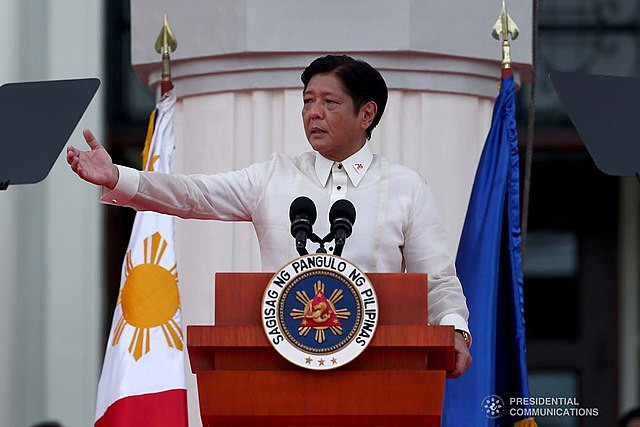In a recent escalation of diplomatic tensions, Philippine Secretary of National Defense Gilberto Teodoro sharply criticized Chinese foreign ministry spokesperson Mao Ning for her derogatory comments towards Philippine President Ferdinand "Bongbong" Marcos Jr. Mao's remarks came in response to President Marcos Jr.'s congratulatory message to Taiwanese president-elect Lai Ching-te, which has sparked a heated exchange between the two nations.
"It is unfortunate that the PRC (People's Republic of China) Ministry of Foreign Affairs spokesperson stooped to such low and gutter level talk - resorting to insulting our President and the Filipino nation, and further debasing herself, the Ministry, and the Party she represents in the process," Teodoro stated in a vehement rebuke. His comments highlight the growing strain in relations between Beijing and Manila.
Teodoro's denunciation refers to Mao's Tuesday comments, where she suggested that Marcos Jr. should "read more to develop a proper understanding of the ins and outs of the Taiwan question." This condescending remark came after Marcos Jr. extended his congratulations to Lai Ching-te following his victory in Taiwan's presidential election. President Marcos Jr. expressed his eagerness for collaboration and strengthening mutual interests with Taiwan, a self-governing island that China claims as its own territory.
In response to the Philippine President's message, Lai Ching-te thanked Marcos Jr. and expressed his anticipation of bolstering people-to-people ties and promoting democracy in the region. This exchange comes against the backdrop of mid-2023 statements by Taiwanese Foreign Minister Jaushieh Joseph Wu, who suggested potential security cooperation between Taipei and Manila, citing shared concerns over China's assertiveness.
The diplomatic spat underscores a notable shift in the Philippines' foreign policy under Marcos Jr., who has diverged from his predecessor Rodrigo Duterte's approach by reviving traditional defense ties with Washington. This realignment is viewed as Manila's strategy to counterbalance China's growing influence, particularly in the contested South China Sea.
The Philippine Department of Foreign Affairs (DFA) also released a statement on Thursday, indicating efforts to de-escalate tensions. Philippine Foreign Affairs Undersecretary Ma. Theresa P. Lazaro and Chinese Assistant Foreign Minister Nong Rong held discussions aimed at calming the situation in the South China Sea. Both nations agreed on the importance of diplomacy and continuous dialogue to maintain stability in the region.
China's expansive territorial claims in the South China Sea, illustrated by its revised 2023 map extending the infamous nine-dash line to a 10-dash line encompassing Taiwan and areas within the Philippine exclusive economic zone (EEZ), continue to be a major point of contention. The dispute over these waters remains a significant challenge in Beijing-Manila relations, as both countries, along with other Southeast Asian neighbors, lay claim to parts of the sea.
As tensions simmer, the diplomatic exchange between China and the Philippines highlights the complexities of regional politics in Southeast Asia. The evolving situation underscores the delicate balance that nations like the Philippines must strike in navigating their relationships with major powers like China and the United States, while asserting their sovereignty and national interests.





